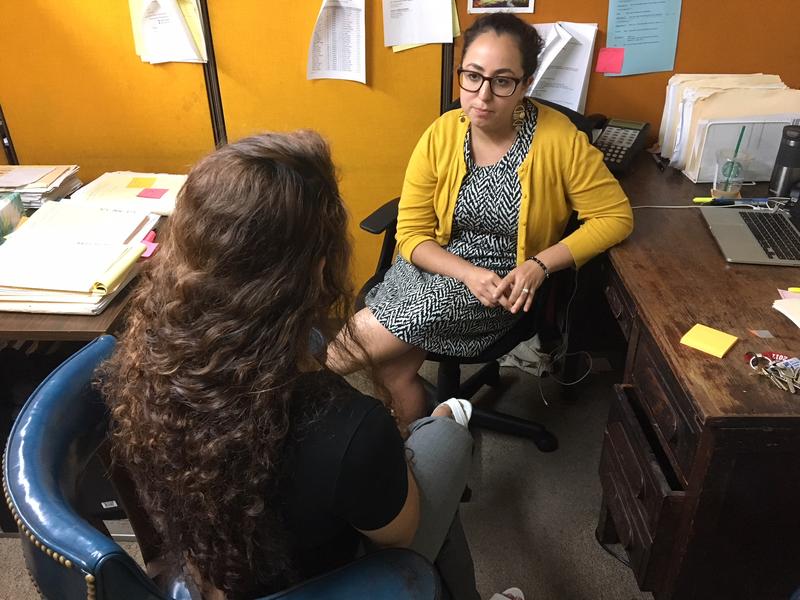
Naomi claims she was fleeing a violent boyfriend in Honduras five years ago when she came to the U.S. seeking asylum. Here in New York, the 23 year-old woman says she feels free as a dove.
"Because here, women like me who have suffered through these horrific things, we feel like we have wings here," she said in Spanish. "That we are able to fly with our wings, to work and do as we wish."
Naomi asked us not to use her real name because she's afraid of what she left behind: the man she said beat her and also burned her young son with hot oil. WNYC reported on her case last month.
But Attorney General Jeff Sessions ruled last week that women whose governments don't protect them from private acts of violence are not a distinct, persecuted social group. That means they don't qualify for asylum in immigration court. The courts are controlled by the Justice Department and Sessions overturned a precedent set by the Obama administration.
When Naomi heard the news, she said, she felt like the government had taken away hope for women like herself, "stripping us of our wings."
Immigration lawyers are now thinking of novel legal strategies to defend their clients.
Naomi's lawyer, Michelle Martinez at Central American Legal Assistance in Brooklyn, was originally preparing to go to court with her client earlier this year but the case was postponed. Now that the legal ground has shifted, Martinez said she might argue that Naomi was politically persecuted because Honduran police never responded to complaints about her boyfriend.
"Naomi has expressed how she denounced him, attempted to report her partner to the police and how was enraged when he learned...she attempted to file a complaint against him," she explained. By taking that action, she said, Naomi expressed "how she believes that as a woman she should not have to live beside a man and conform to these societal expectations in Honduras that a woman has to stand by her man and succumb to these abuses no matter what."
It's not the same as marching in the street, protesting in defiance of government policy. But Martinez said political action can take many forms — especially in Central American countries where police and other layers of government are controlled by vicious drug lords and gangs. Those who report crime are often met with violence.
Immigration lawyers have also said they could argue that the U.S. would be in violation of the international Convention Against Torture if it deports victims of domestic violence back to countries that looked the other way when they were originally harmed. But when a person is granted protection this way, Martinez said, "it is not a pathway to residency or citizenship." And there's no way to bring over relatives. With asylum, Naomi can bring her son to the U.S.
Martinez cautions it's still too early to know what arguments she'll pursue. Naomi's court date is in January, giving her lawyer a few months to prepare.
In the meantime, Naomi has working papers and a job cleaning houses. She talks to her son daily in Honduras. He's living with her mother because he wasn't able to join her on the dangerous journey to the U.S. He was still recovering from the third degree burns he suffered when her boyfriend mistakenly threw a pot of hot oil at the boy that was intended to strike Naomi.
"I try to keep hope at least for my son," Naomi said.
